Introduction
Welcome to the world of Ayurveda, where the key to wellness lies in nature's bounty. In this article, I'll guide you through the top 8 potent spices used in Ayurveda Remedies, each a powerhouse in promoting health and healing. These spices are not just culinary delights but also medicinal marvels, integral to Ayurveda's holistic approach to health.
The Essence of Ayurveda and Potent Spices
Ayurveda, an ancient holistic healing system from India, places paramount importance on diet as a fundamental means of preventing and treating diseases. The philosophy of Ayurveda is both simple and profound: nurturing a healthy immune system is the cornerstone of maintaining good health and warding off illness. This approach is not just about avoiding sickness; it's about cultivating an environment within the body that promotes vitality and well-being.
Empower Your Health Journey – Explore My Free Apps for a Vibrant, Healthier Lifestyle Today!
At the heart of Ayurvedic dietary practices are potent spices, each chosen for their specific health-enhancing properties. These spices are far more than just flavour enhancers; they are considered medicinal ingredients, integral to the healing and preventive aspects of Ayurveda. The use of these spices in everyday cooking is a testament to the wisdom of Ayurveda in recognising the therapeutic potential of nature’s offerings.
In India, where Ayurveda originated, the incorporation of these potent spices into daily meals is both a culinary art and a health practice. Indian cooking is renowned for its rich, complex flavours, which are largely attributed to the masterful use of a variety of spices. These spices are selected not only for their taste but also for their ability to support digestion, boost immunity, and provide a myriad of other health benefits.
The potency of these spices lies in their complex chemical makeup, which includes essential oils, antioxidants, minerals, and vitamins. These components work in synergy within the human body, contributing to its natural ability to heal and maintain balance. For instance, some spices are known for their anti-inflammatory properties, while others stimulate digestion or have antibacterial and antiviral effects.
Moreover, Ayurveda advocates for a personalised approach to diet, recognising that each individual has unique needs and responses to different foods and spices. This aspect of Ayurveda underscores the importance of understanding one’s own body and its responses, allowing for a more tailored and effective use of potent spices for health and wellbeing.
In essence, the use of potent spices in Ayurveda is a perfect blend of ancient wisdom and natural pharmacology. It exemplifies how traditional practices can offer profound insights into maintaining health in the modern world. These spices, in their myriad forms and preparations, are not just condiments but powerful tools in the Ayurvedic arsenal for achieving and sustaining optimal health.
Detailed Look at the 8 Potent Spices
1. Mustard Seeds in Ayurveda Remedies
Mustard seeds, a quintessential ingredient in Indian cuisine, are much more than a simple spice. In Ayurveda, they are highly valued for their impressive array of health benefits, stemming from their rich content of essential minerals and nutrients. Predominantly used in their black, brown, and yellow varieties, each type of mustard seed has its unique flavour and therapeutic properties.
The significance of mustard seeds in Ayurvedic practices is multifaceted. Firstly, these tiny seeds are a powerhouse of minerals such as magnesium, calcium, potassium, and phosphorus. Magnesium plays a crucial role in maintaining nerve function and bone health, while calcium is vital for bone density and strength. Potassium aids in maintaining a healthy heart rate and blood pressure, and phosphorus is essential for the repair and growth of body cells and tissues.
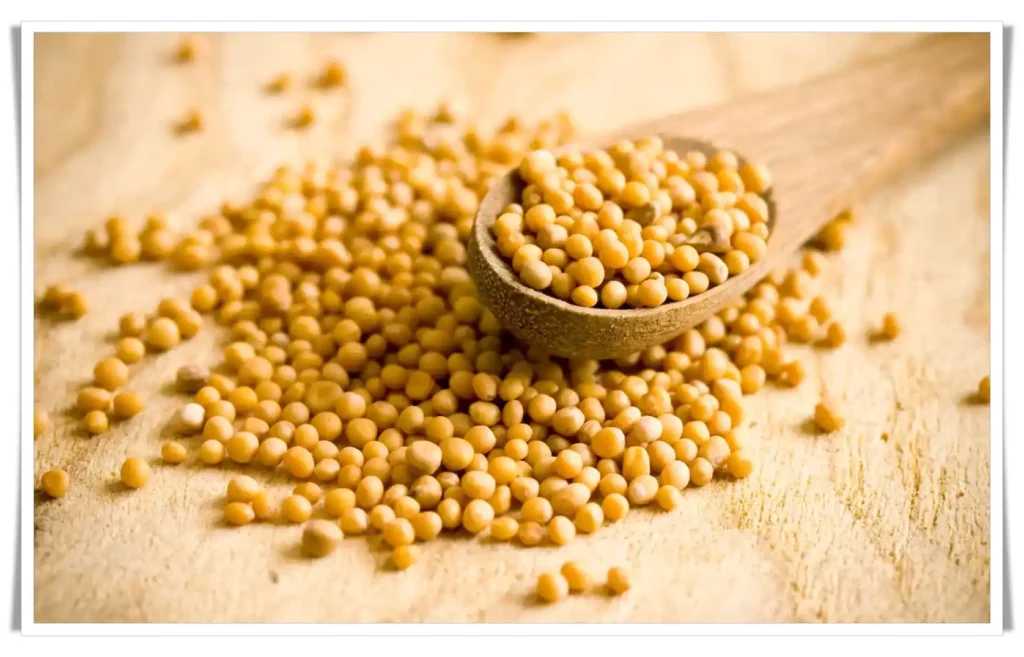
Another notable aspect of mustard seeds is their ability to enhance blood circulation. Good circulation is vital for transporting nutrients and oxygen to various parts of the body, thus ensuring overall health and vitality. This improved circulation, facilitated by the intake of mustard seeds, is particularly beneficial for cardiovascular health. It helps in maintaining a healthy heart and may reduce the risk of heart-related ailments.
Furthermore, mustard seeds have been identified as having cancer-preventative properties. The presence of compounds like glucosinolates and myrosinase in mustard seeds is believed to activate enzymatic reactions that help in the prevention of cancer cell growth. These compounds can potentially inhibit the proliferation of cancerous cells, making mustard seeds a valuable addition to a cancer-preventative diet.
In Indian cooking, mustard seeds are typically used in tempering, a technique where spices are briefly roasted in oil or ghee to release their flavours and aromas before being added to a dish. This method not only enhances the taste of the food but also makes the nutritional benefits of mustard seeds more bioavailable.
2. Cinnamon in Ayurveda Remedies
Cinnamon, a highly prized spice in Ayurveda, stands out for its remarkable health benefits and distinctive flavour. This spice, derived from the inner bark of trees from the genus Cinnamomum, is celebrated not only as a culinary delight but also for its medicinal properties. In Ayurvedic medicine, cinnamon is revered for its potent antioxidant capacity, making it a valuable ally in combating oxidative stress and inflammation.
One of the most significant health attributes of cinnamon is its role as an antioxidant powerhouse. It contains a host of protective compounds, including cinnamaldehyde, cinnamic acid, and cinnamate. These compounds are effective in neutralising harmful free radicals, thereby reducing oxidative stress in the body. This antioxidant property is crucial in preventing cellular damage and reducing the risk of chronic diseases.
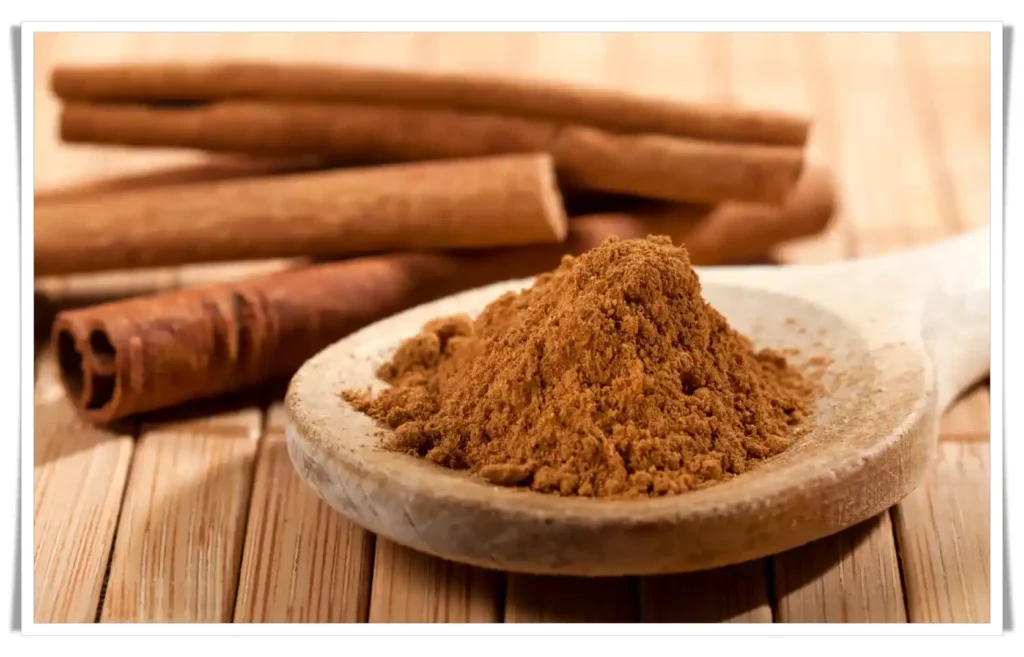
In terms of cardiovascular health, cinnamon is a boon. It aids in improving blood circulation, which is fundamental for transporting nutrients and oxygen to various body tissues. Enhanced circulation not only contributes to overall vitality but also supports the health of the heart. The spice's ability to act as a natural blood thinner further complements this benefit. By preventing blood platelets from clumping together excessively, cinnamon helps reduce the risk of blood clots, thereby supporting heart health.
Moreover, cinnamon’s impact on blood sugar levels is particularly noteworthy. It has been found to have a positive effect on insulin sensitivity, making it easier for the body to regulate blood sugar levels. This property makes cinnamon a valuable dietary addition for those managing diabetes or at risk of developing the condition. Regular consumption of cinnamon can help maintain stable blood sugar levels, which is a critical aspect of diabetes prevention and management.
Detoxification is another key benefit of cinnamon. It aids in flushing out toxins from the body, promoting liver health and overall well-being. This cleansing effect can also contribute to better digestion and a stronger immune system.
Culinary-wise, cinnamon is versatile. It can be used in both sweet and savoury dishes, from curries and stews to desserts and beverages. Its warm, sweet, and woody flavour enhances the taste profile of a wide array of dishes.
3. Turmeric in Ayurveda Remedies
Turmeric, a vibrant yellow-orange spice, has been a cornerstone in Ayurvedic medicine for centuries. Renowned for its active compound, curcumin, turmeric offers a plethora of health benefits that align with Ayurveda's principles of natural healing and prevention.
At the heart of turmeric's healing properties is its potent anti-inflammatory action. Inflammation is a natural response of the body to injury or infection, but chronic inflammation can lead to various health issues. Curcumin, with its strong anti-inflammatory capabilities, helps in mitigating this chronic inflammation, thereby aiding in the prevention and treatment of numerous conditions, from arthritis to heart disease. Its efficacy in reducing inflammation is comparable to certain anti-inflammatory drugs, making it a natural and safer alternative.
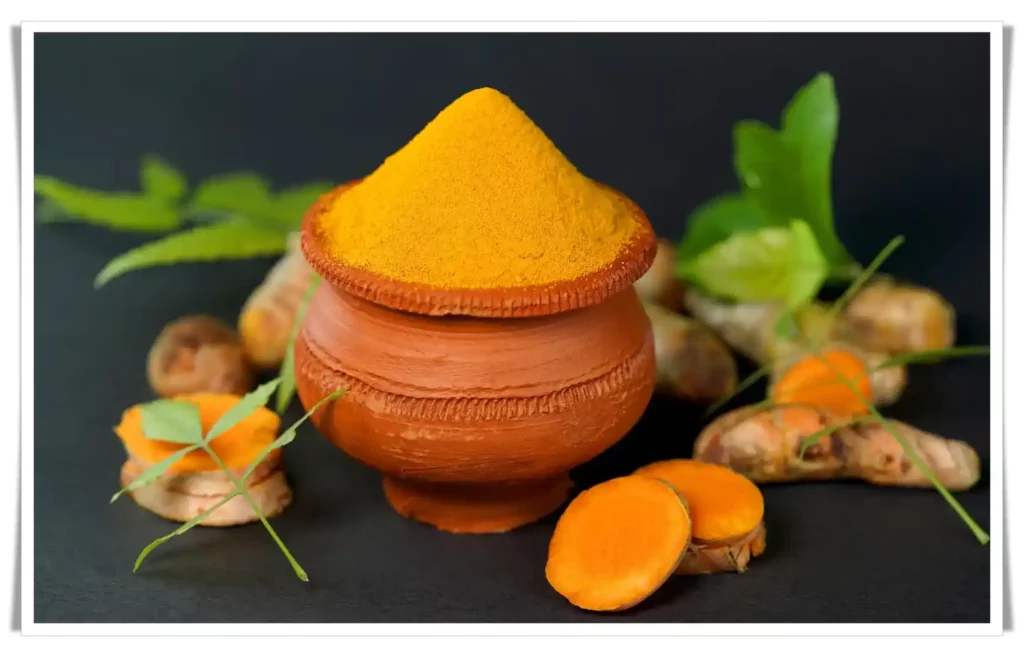
Turmeric's role as a natural antibiotic is another significant aspect of its medicinal value. It possesses powerful antimicrobial properties, making it effective in fighting a range of bacterial and viral infections. This quality not only helps in treating infections but also in preventing them, thereby bolstering the body's natural defence system.
Additionally, turmeric has been found to play a vital role in cardiovascular health by lowering LDL cholesterol, commonly known as bad cholesterol. High levels of LDL cholesterol can lead to plaque buildup in the arteries, increasing the risk of heart attacks and strokes. Curcumin’s ability to reduce LDL cholesterol levels and improve blood vessel function is a key factor in maintaining a healthy heart.
Turmeric is also beneficial for allergy sufferers. Its antihistamine properties help in reducing the symptoms of allergies, such as sneezing, congestion, and itching. By modulating the immune response, turmeric can help prevent allergic reactions from becoming severe.
For those seeking a more concentrated form of curcumin, supplements are an excellent option. These supplements provide a higher dose of curcumin than what can typically be obtained from the spice alone, making them effective for targeted therapeutic purposes. However, it’s important to choose high-quality supplements and consult a healthcare professional before starting any new supplement regimen.
Incorporating turmeric into the diet is simple and versatile. It can be added to curries, soups, smoothies, and even teas. Its earthy and slightly bitter flavour complements a variety of dishes, making it easy to include in everyday meals.
4. Cumin in Ayurveda Remedies
Cumin, a staple spice in Ayurvedic cuisine, is renowned not just for its distinct flavour but also for its impressive range of therapeutic properties. In Ayurveda, cumin is highly valued as both a pain relief agent and a digestive aid, making it an essential spice in the holistic approach to health and wellness.
As a pain reliever, cumin is notable for its anti-inflammatory properties. These properties make it effective in alleviating various forms of pain, particularly those related to arthritis and muscular aches. The active compounds in cumin, such as cumin aldehyde and thymol, are responsible for its anti-inflammatory effects. They help reduce swelling and soothe soreness, offering relief from discomfort.
Cumin's role as a digestive aid is particularly significant. It stimulates the secretion of digestive enzymes and aids in the efficient breakdown of food, facilitating better nutrient absorption. This quality of cumin is especially beneficial in treating digestive issues such as indigestion, bloating, and flatulence. By enhancing the digestive process, cumin ensures the overall health of the gastrointestinal system, which is a key focus in Ayurvedic medicine.
Additionally, cumin possesses carminative properties, meaning it helps in relieving gas and preventing its formation in the gastrointestinal tract. This aspect of cumin is crucial in managing and preventing discomfort and pain associated with gas and bloating.
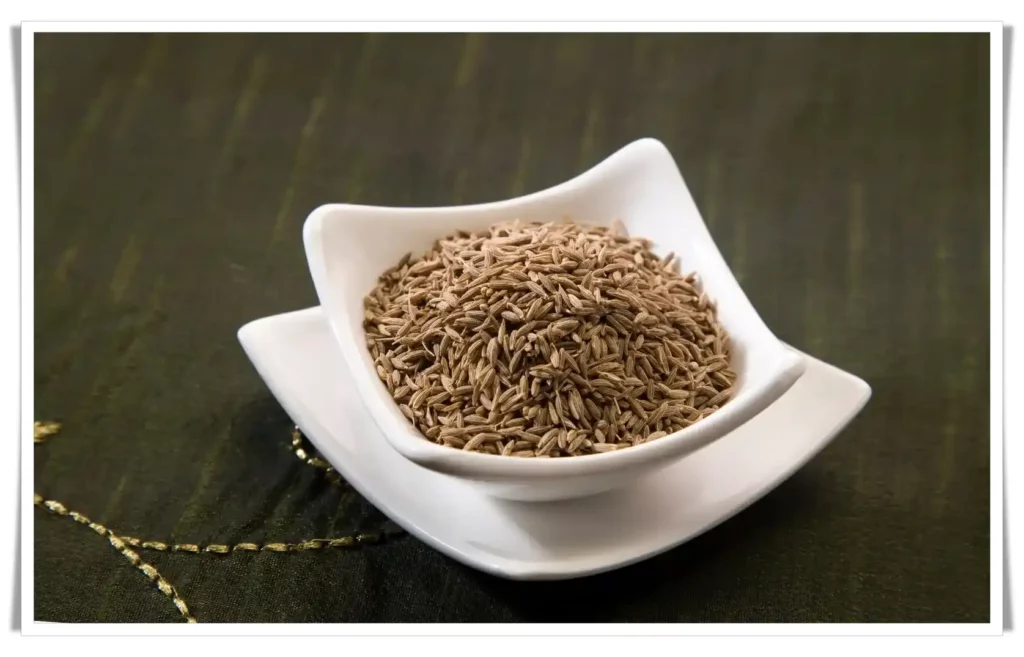
Cumin is also known for its antioxidant properties, which further contribute to its health benefits. These antioxidants help neutralize free radicals in the body, thereby reducing oxidative stress and preventing damage to cells and tissues. This antioxidative action is important in maintaining overall health and preventing various chronic diseases.
Using cumin in the diet is easy and versatile. It can be used in whole seed form, which can be toasted to enhance its flavour, or as ground powder. Cumin is a common ingredient in spice blends and is widely used in various dishes, including curries, soups, and stews. Its warm, earthy flavour adds depth and complexity to a wide range of recipes.
5. Cardamom in Ayurveda Remedies
Cardamom, often referred to as the "Queen of Spices" in Ayurvedic medicine, is highly esteemed not only for its aromatic fragrance but also for its extensive medicinal properties. This spice is particularly lauded for its effectiveness in treating both respiratory and gastrointestinal issues, attributed to its unique blend of essential oils with potent antibacterial and antiviral properties.
In terms of respiratory health, cardamom plays a crucial role in Ayurveda. It is known for its expectorant properties, which help clear out the mucus from the airway, making it beneficial for those suffering from common colds, coughs, and bronchitis. The soothing effect of cardamom on the mucous membranes can provide relief from symptoms of asthma and other respiratory ailments. Its warming nature helps in loosening phlegm and easing congestion, thereby facilitating easier breathing.
When it comes to gastrointestinal health, cardamom is equally efficacious. It stimulates the digestive system, aiding in the proper breakdown and assimilation of food. This spice is particularly helpful in relieving symptoms of indigestion, such as bloating and gas, due to its carminative properties. Furthermore, cardamom is known to alleviate nausea and vomiting, making it a go-to remedy for morning sickness during pregnancy or motion sickness.
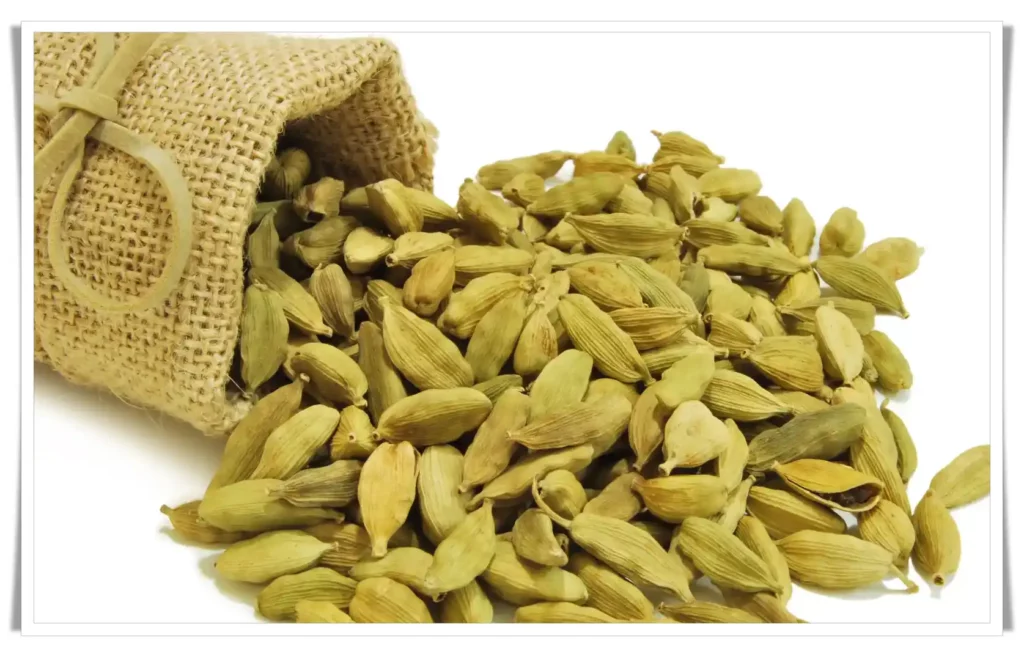
The antibacterial and antiviral properties of cardamom are attributable to its natural oils, including cineole, limonene, and eucalyptol. These oils contribute to cardamom's ability to fight infections and protect the body from various pathogens. Its antibacterial effect is particularly effective in combating gastrointestinal infections, while its antiviral properties help in managing and preventing respiratory infections.
Cardamom's versatility extends to its culinary uses as well. It is a popular ingredient in both sweet and savoury dishes, imparting a distinctively sweet and spicy flavour. It can be used in whole pod form, seeds, or ground powder, making it a flexible addition to a range of recipes, from curries and stews to teas and desserts.
6. Coriander in Ayurveda Remedies
Coriander, a versatile herb and spice widely used in Ayurvedic practices, offers a range of health benefits that go beyond its culinary use. Recognised both for its seeds (coriander seeds) and leaves (cilantro), this plant is particularly effective in treating skin rashes, nausea, and water retention, making it a valuable ingredient in holistic health.
In treating skin conditions such as rashes, coriander exhibits remarkable anti-inflammatory and antiseptic properties. These properties are derived from its essential oils and bioactive compounds, which help soothe the skin and reduce inflammation. Coriander can be used topically as a paste or taken internally to address skin irritations and allergic reactions, offering a natural and gentle alternative to conventional treatments.
When it comes to digestive health, coriander is well-known for its efficacy in alleviating nausea and settling upset stomachs. The herb stimulates digestive enzymes and juices, aiding in the breakdown of food and the absorption of nutrients. This makes coriander an excellent remedy for digestive discomforts, including nausea, indigestion, and bloating. Its mild yet effective nature makes it suitable even for those with sensitive digestive systems.
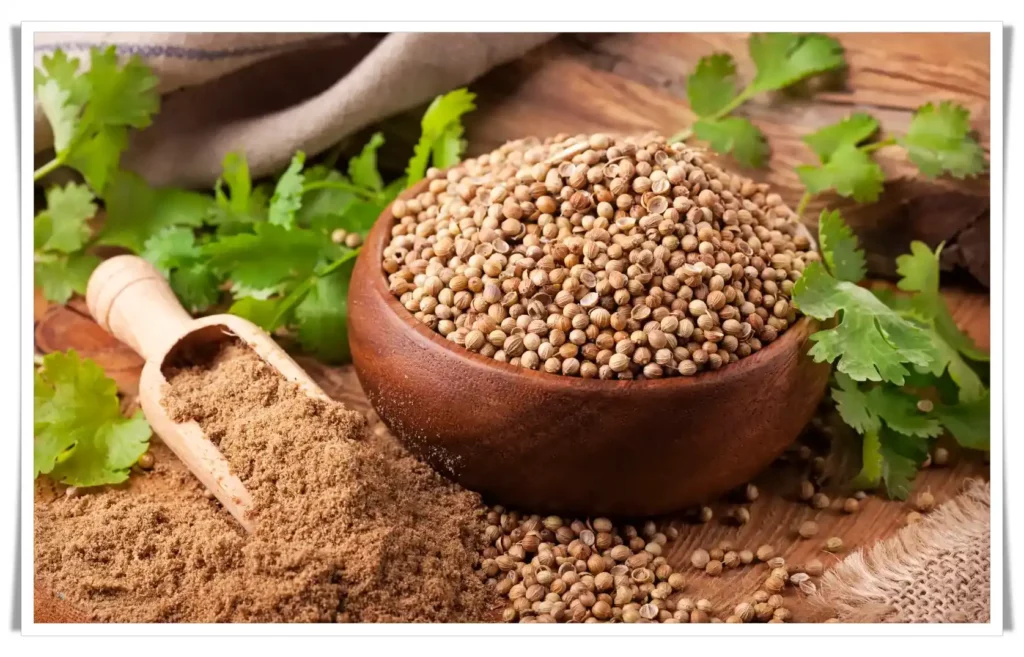
Additionally, coriander plays a significant role in managing water retention in the body. It acts as a natural diuretic, helping the body to eliminate excess water and salts. This diuretic property is particularly beneficial in reducing bloating and swelling caused by water retention. It also supports kidney function and can aid in the prevention of urinary tract infections.
Coriander is not only a culinary delight but also a medicinal herb in Ayurveda. It can be used in various forms, such as fresh leaves, dried seeds, or ground into a powder. Its unique flavour, described as both citrusy and nutty, makes it a popular addition to a wide array of dishes, including curries, soups, salads, and sauces.
7. Cloves in Ayurveda Remedies and Health Practices
Cloves, with their intense aroma and pungent flavour, are not only a staple in spice cabinets but also hold a revered place in Ayurvedic medicine. This small yet potent spice is renowned for its ability to improve digestion, fight inflammation, and act as a natural aphrodisiac, making it a valuable addition to both the kitchen and the medicine cabinet.
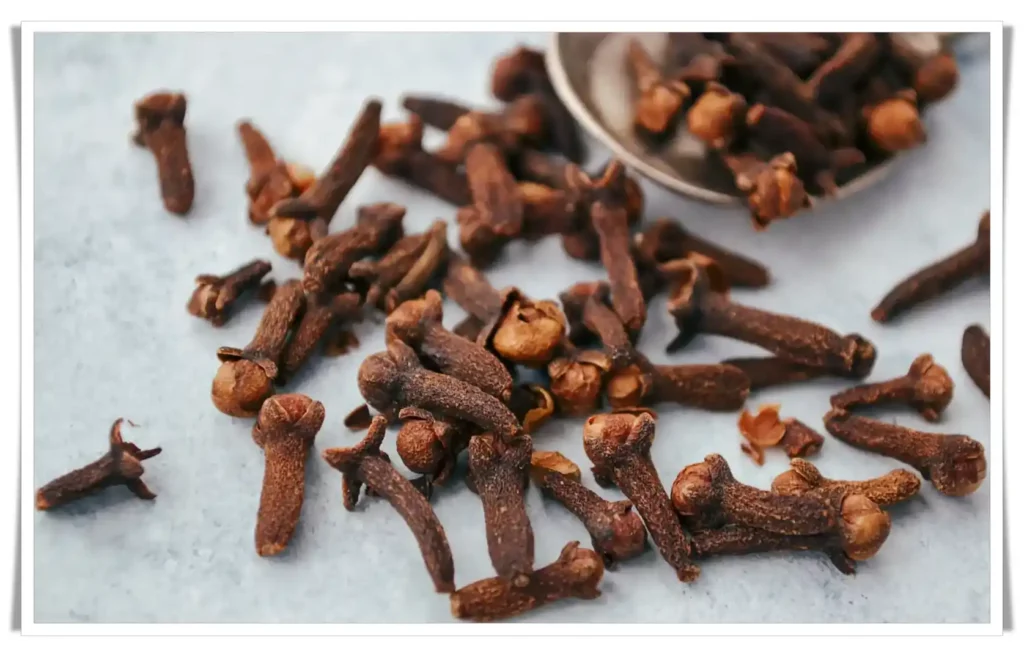
The digestive benefits of cloves are substantial. They are known to stimulate the secretion of digestive enzymes, which aids in the efficient breakdown of food and enhances nutrient absorption. This stimulatory effect can be particularly beneficial for those suffering from indigestion, bloating, or gas. Additionally, cloves possess carminative properties, meaning they help to reduce or prevent the formation of gas in the gastrointestinal tract, thereby relieving discomfort and promoting digestive health.
When it comes to fighting inflammation, cloves are a powerhouse. They contain eugenol, a compound with strong anti-inflammatory properties. This makes cloves effective in alleviating pain and swelling associated with various inflammatory conditions, such as arthritis. The analgesic properties of eugenol can also provide relief from toothaches and other forms of pain, making cloves a natural and versatile pain reliever.
Furthermore, cloves are recognised as a natural aphrodisiac in Ayurvedic practices. Their warming properties and stimulating effect can enhance blood circulation and increase energy, contributing to improved sexual health and vitality. This aspect of cloves is not just limited to physical health but also encompasses mental and emotional well-being, as they can help in reducing stress and elevating mood.
Incorporating cloves into one's diet is straightforward and versatile. They can be used whole, ground into a powder, or infused into teas and beverages. Their strong, warming flavour makes them a popular choice for spicing up both sweet and savoury dishes, from rich curries to warming winter drinks.
8. Ginger in Ayurveda Remedies and Healing
Ginger, a rhizome revered for centuries in Ayurvedic practices, is celebrated for its extensive range of health benefits. This potent spice, known for its distinctive spicy and warming flavour, is a cornerstone in treating various ailments, from nausea and digestive issues to menstrual pain.
A primary benefit of ginger is its effectiveness in combating nausea. It is particularly renowned for providing relief from morning sickness during pregnancy, as well as nausea caused by motion sickness or chemotherapy. The active compounds in ginger, such as gingerol and shogaol, have properties that help soothe the stomach and reduce feelings of discomfort. This antiemetic effect makes ginger a natural and safe remedy for managing nausea without the side effects often associated with conventional medication.
In terms of digestive health, ginger plays a significant role in Ayurvedic medicine. It is known to stimulate saliva, bile, and gastric enzymes, enhancing the digestion process and ensuring efficient nutrient absorption. This stimulatory effect helps in alleviating digestive issues such as indigestion, bloating, and constipation. Ginger's carminative properties also aid in reducing intestinal gas, thereby relieving discomfort and promoting a healthy digestive system.
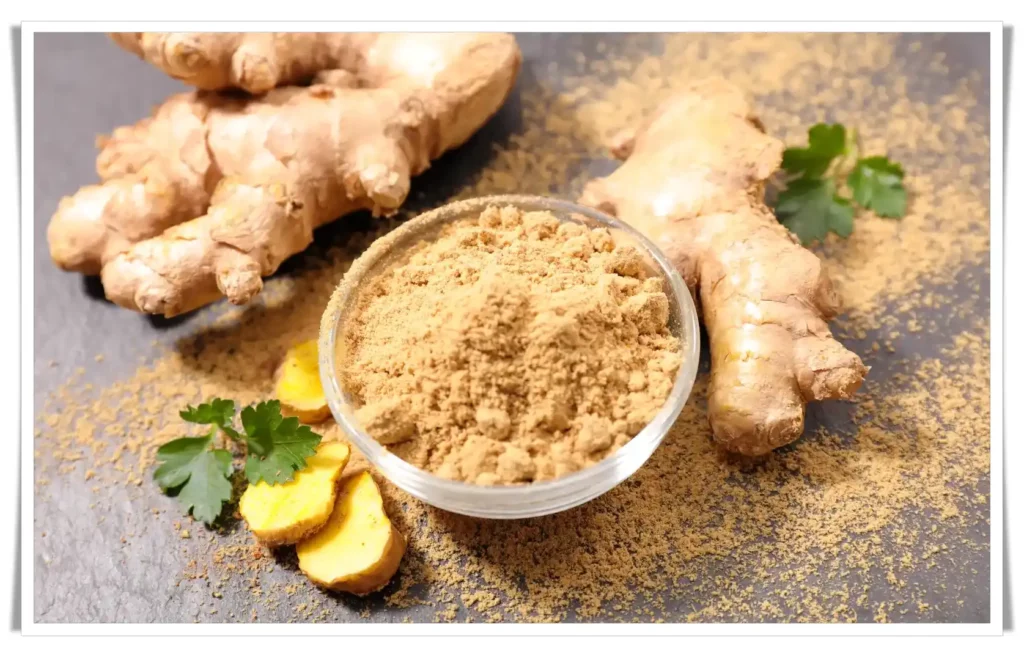
Ginger is also highly effective in alleviating menstrual pain. Its anti-inflammatory and analgesic properties make it a natural alternative to painkillers for women experiencing dysmenorrhea (painful menstruation). By helping to relax the muscles and alleviate cramps, ginger can provide significant relief during menstrual cycles.
Beyond these specific benefits, ginger is also known for its overall health-promoting properties. It has antioxidant effects that combat oxidative stress in the body, and its anti-inflammatory properties can be beneficial in managing conditions like arthritis and reducing muscle soreness after exercise. Additionally, ginger has been found to have thermogenic properties, which can aid in metabolism and weight management.
Incorporating ginger into one's diet is both easy and versatile. It can be consumed fresh, dried, powdered, or as an oil or juice. Ginger is a popular ingredient in a variety of dishes, from stir-fries and soups to teas and smoothies. Its sharp, invigorating taste adds a unique flavour to foods and drinks, making it a favourite in many cuisines.
Bridging Ayurveda With Evidence-Based Scientific Approaches in Medicine
Study Overview: The article, "Bridging Ayurveda with Evidence-based Scientific Approaches in Medicine," presents a comprehensive review of integrating Ayurveda with modern, evidence-based medicine. The author delves into the quality and methodology of Ayurvedic research, discussing the need for epistemologically sensitive methods and rigorous scientific validation.
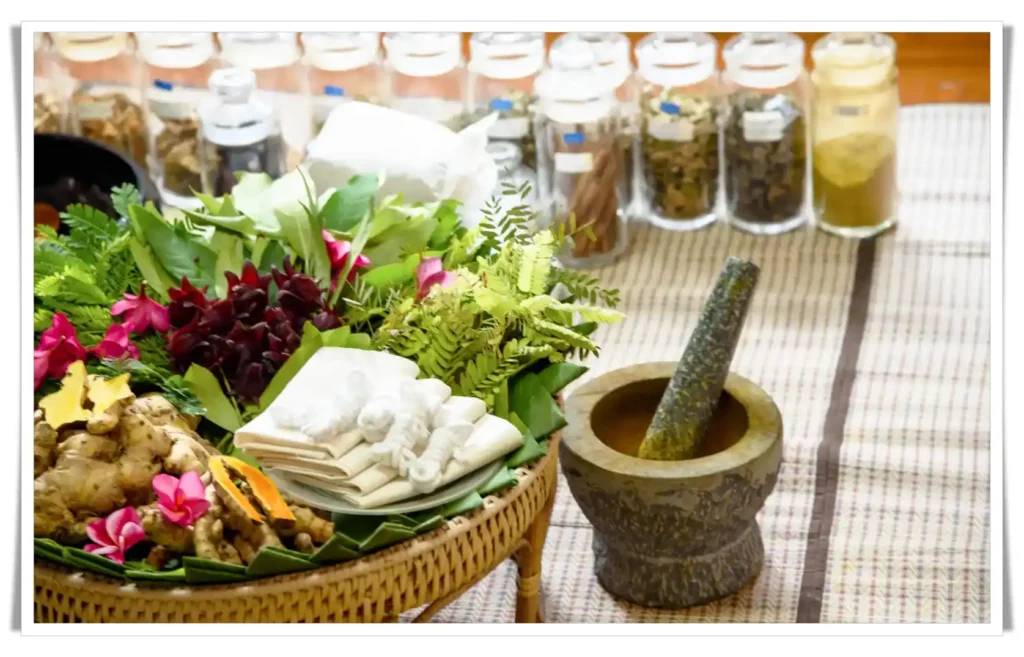
Key Highlights:
- Integration of Traditional and Modern Medicine: The article emphasises the importance of blending traditional Ayurvedic practices with contemporary medical approaches, advocating for a holistic, personalized health focus.
- Ayurvedic Principles: Ayurveda, described as the 'science of life', is rooted in ancient texts and offers extensive knowledge on herbs, formulations, and diagnostics, viewing life as a union of body, senses, mind, and spirit.
- Global Recognition and Practice: The paper notes that Ayurveda is not just limited to Indian scholars but has gained recognition and practice globally, especially in Western countries.
- Modern Relevance and Adaptation: The article argues for the adaptation of Ayurveda to contemporary needs, acknowledging changes in environment, lifestyle, and health challenges.
- Research and Development Needs: There is a call for continuous research in Ayurveda, focusing on safety, efficacy, and clinical applications, and moving away from a purely traditionalist view.
Scientific Evaluation and Methodology:
- The paper stresses the necessity of scientifically evaluating Ayurveda, particularly its personalized approach and dietary recommendations.
- Ayurvedic principles like 'Prakriti' are being studied in the context of modern biology and genomics.
Modern Science and Ayurveda:
- Modern science, moving towards holistic concepts like systems biology, presents an opportunity to integrate Ayurveda and Western biomedicine effectively.
- The study acknowledges the growing popularity of traditional and complementary medicine, urging the Ayurvedic sector to adopt rigorous scientific research methods.
Conclusion: The article concludes that Ayurveda, with its holistic and patient-centred approach, has the potential to significantly contribute to modern healthcare, especially in personalized medicine. However, this requires a systematic approach to research and integration with modern scientific principles and methodologies.
Link to the Study: Read the full article here
This summary encapsulates the key points of the article, highlighting the potential synergies between Ayurveda and modern medicine, and the need for ongoing research and adaptation to contemporary health challenges.
Benefits Table with Hyperlinked Sources
| Spice | Key Benefits | Source Link |
|---|---|---|
| Mustard | Cardiovascular health, cancer prevention | Link |
| Cinnamon | Antioxidant, heart health, diabetes prevention | Link |
| Turmeric | Anti-inflammatory, cholesterol control | Link |
| Cumin | Pain relief, digestive aid | Link |
| Cardamom | Respiratory aid, gastrointestinal relief | Link |
| Coriander | Treats rashes, nausea, water retention | Link |
| Cloves | Digestion, anti-inflammatory, aphrodisiac | Link |
| Ginger | Treats nausea, digestive aid, menstrual pain relief | Link |
Incorporating These Spices in Daily Life
Integrating these spices into your diet can be a delightful exploration. Start small and experiment with different recipes. You'll soon notice a positive shift in your health and well-being.

FAQs
Q: Can these spices interact with medications?
A: Yes, certain spices can interact with medications. It's essential to consult your doctor before adding new spices to your diet, especially if you're on medication. This precaution ensures that the spices don't interfere with the effectiveness of your medication or cause adverse reactions.
Q: Are there any side effects to using these spices?
A: Generally, these spices are safe when used in culinary amounts. However, high doses or supplements should be used with caution, as they can lead to side effects such as stomach upset, allergic reactions, or other health issues. It's always best to start with small amounts and observe how your body reacts.
Q: Can pregnant women safely use these Ayurvedic spices?
A: While many Ayurvedic spices are safe during pregnancy, some should be used with caution or avoided. For example, high doses of turmeric or ginger may not be recommended. Pregnant women should consult with their healthcare provider before making significant changes to their diet or using herbal supplements.
Q: How quickly can I expect to see health benefits from these spices?
A: The time frame for experiencing health benefits from these spices can vary greatly depending on the individual, the specific health condition, and how the spice is used. Some people may notice improvements within a few days, while for others, it might take weeks or even longer. Consistent and moderate use is key to seeing benefits.
Q: Can children use these Ayurvedic spices?
A: Yes, most Ayurvedic spices are safe for children in culinary amounts. However, the dosage and suitability might differ for children compared to adults. It's important to introduce these spices gradually and in small quantities. Consulting a paediatrician or a healthcare professional experienced in Ayurvedic practices is advisable before introducing these spices to children's diets.
Conclusion
The incorporation of Ayurvedic spices into our daily regimen can be a transformative step towards holistic health. By understanding and utilizing these potent spices, Ayurveda remedies offer a natural and effective way to enhance our well-being. The unique properties of these spices, deeply rooted in Ayurveda, have the potential to improve various aspects of our health.
It’s clear that Ayurveda remedies, with their focus on potent spices, are not just about adding flavour to our meals but are a gateway to a healthier lifestyle. Embracing these spices in our cooking and lifestyle, as recommended by Ayurveda, can lead us to a path of wellness and vitality. Therefore, it's essential to integrate these potent spices into our diet, as Ayurveda remedies have proven time and again their invaluable benefits for our overall health.
Call to Action
Have you tried any of these spices in your wellness journey? Share your experiences in the comments below!
Engage with Related Content
For more insights on Ayurveda and healthy living, check out my article "Ayurveda For Healthy Life Body and Mind" [here](https://bc-educate.com/ayurveda-for-healthy-body-and-mind

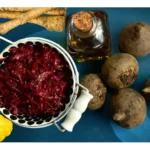

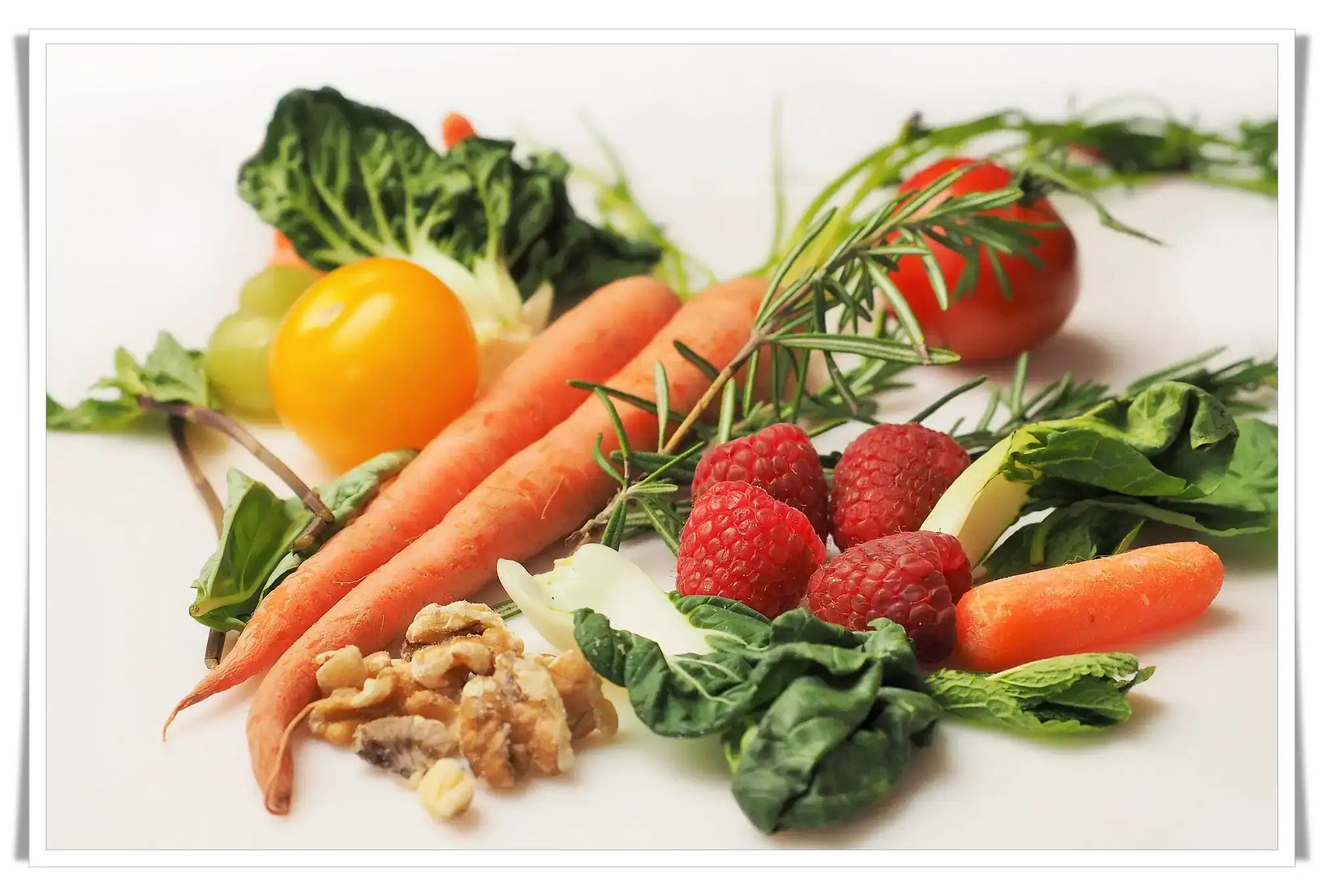

I like your post, very informative. Keep going!
Hi i think that i saw you visited my web site thus i came to Return the favore Im attempting to find things to enhance my siteI suppose its ok to use a few of your ideas
Usually I do not read article on blogs however I would like to say that this writeup very compelled me to take a look at and do it Your writing style has been amazed me Thank you very nice article
Lovely! This has been an absolutely fantastic post. I appreciate you sharing these specifics.
Attractive section of content I just stumbled upon your blog and in accession capital to assert that I get actually enjoyed account your blog posts Anyway I will be subscribing to your augment and even I achievement you access consistently fast
I have read some excellent stuff here Definitely value bookmarking for revisiting I wonder how much effort you put to make the sort of excellent informative website
You could never find the words to describe how much I loved you. No matter how beautiful the picture is or how polished your writing is, you read it quickly. To be honest, I think you should give it another chance soon. I will probably try to go on this hike again and again if you make sure it is safe.
I do believe all the ideas youve presented for your post They are really convincing and will certainly work Nonetheless the posts are too short for novices May just you please lengthen them a little from subsequent time Thanks for the post
It was great seeing how much work you put into it. Even though the design is nice and the writing is stylish, you seem to be having trouble with it. I think you should really try sending the next article. I’ll definitely be back for more of the same if you protect this hike.
I loved even more than you will get done right here. The picture is nice, and your writing is stylish, but you seem to be rushing through it, and I think you should give it again soon. I’ll probably do that again and again if you protect this hike.
It was great seeing how much work you put into it. Even though the design is nice and the writing is stylish, you seem to be having trouble with it. I think you should really try sending the next article. I’ll definitely be back for more of the same if you protect this hike.
It was great seeing how much work you put into it. The picture is nice, and your writing style is stylish, but you seem to be worrying that you should be presenting the next article. I’ll almost certainly be back to read more of your work if you take care of this hike.
I loved even more than you will get done right here. The picture is nice, and your writing is stylish, but you seem to be rushing through it, and I think you should give it again soon. I’ll probably do that again and again if you protect this hike.
Hi there, I thought I saw you visited my website, so I came back to say hello. I suppose I could use some of your ideas as I’m trying to find out how to improve my website.
Excellent blog here Also your website loads up very fast What web host are you using Can I get your affiliate link to your host I wish my web site loaded up as quickly as yours lol
What i dont understood is in reality how youre now not really a lot more smartlyfavored than you might be now Youre very intelligent You understand therefore significantly in terms of this topic produced me personally believe it from a lot of numerous angles Its like women and men are not interested except it is one thing to accomplish with Woman gaga Your own stuffs outstanding Always care for it up
Somebody essentially help to make significantly articles Id state This is the first time I frequented your web page and up to now I surprised with the research you made to make this actual post incredible Fantastic job
Although I believe every thought you have for your post is excellent and will undoubtedly be successful, the postings are too brief for new readers. Maybe you could extend them a little bit the next time? I’m grateful for the post.
you are in reality a good webmaster The website loading velocity is amazing It sort of feels that youre doing any distinctive trick Also The contents are masterwork you have done a fantastic job in this topic
I would argue that someone played a significant role in producing a thoughtful post. Having just visited your website for the first time, I’m astonished at the sheer volume of research you performed to create this specific piece. Excellent effort.
Thank you I have just been searching for information approximately this topic for a while and yours is the best I have found out so far However what in regards to the bottom line Are you certain concerning the supply
Over the last week I found this incredible site, they provide top notch content for readers. The site owner has a talent for informing visitors. I’m excited and hope they maintain their superb skills.
Wow, marvelous weblog structure! How lengthy have you been blogging for?
you make blogging look easy. The overall glance of your web site is fantastic, let alone the content!
You can see similar: sklep internetowy
and here ecommerce
Magnificent beat I would like to apprentice while you amend your site how can i subscribe for a blog web site The account helped me a acceptable deal I had been a little bit acquainted of this your broadcast offered bright clear idea
Wonderful beat I wish to apprentice while you amend your web site how could i subscribe for a blog web site The account aided me a acceptable deal I had been a little bit acquainted of this your broadcast provided bright clear idea
An impressive share! I have just forwarded this onto a colleague who had been doing
a little homework on this. And he actually ordered me lunch
simply because I stumbled upon it for him…
lol. So let me reword this…. Thank YOU for the meal!!
But yeah, thanx for spending some time to discuss this topic
here on your internet site. I saw similar here: ecommerce
and also here: sklep online